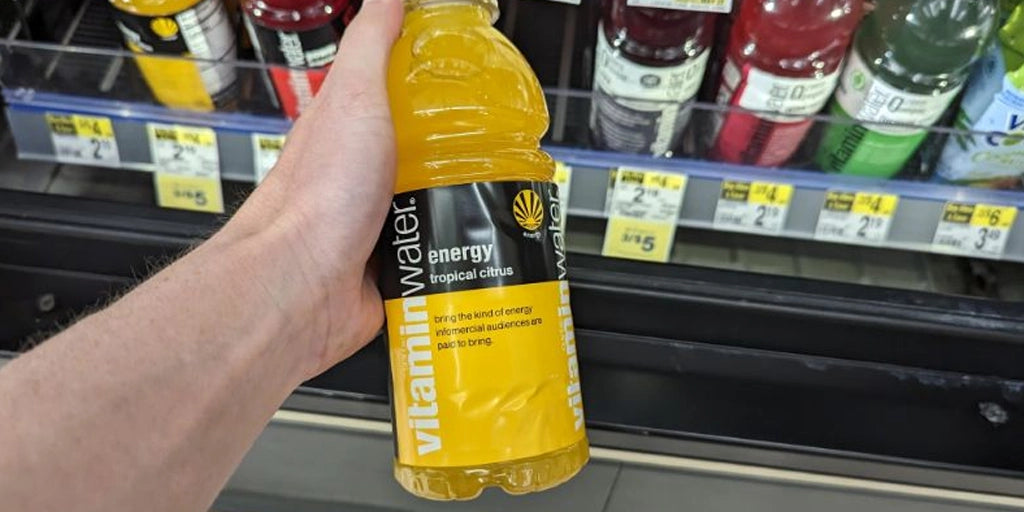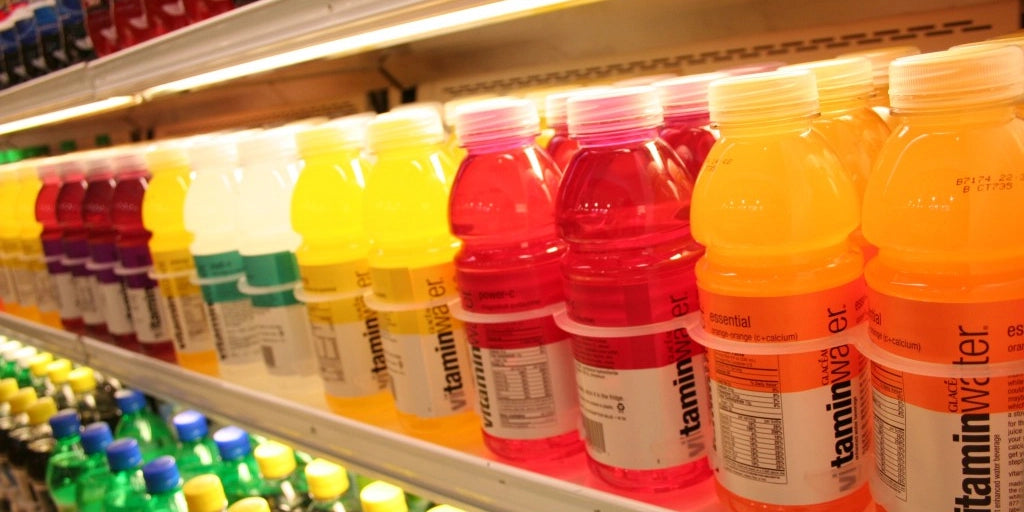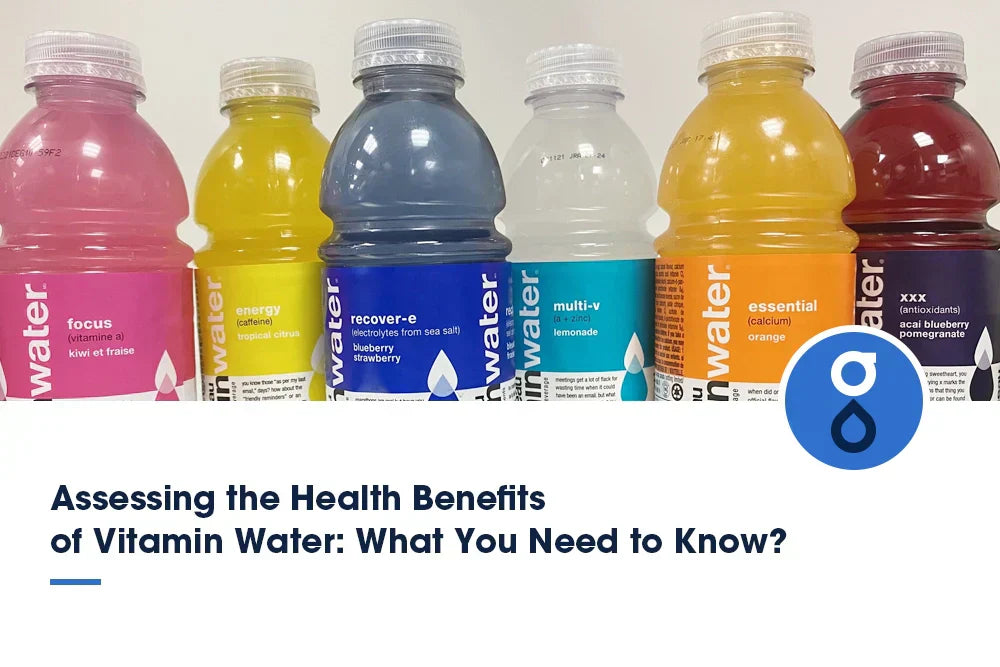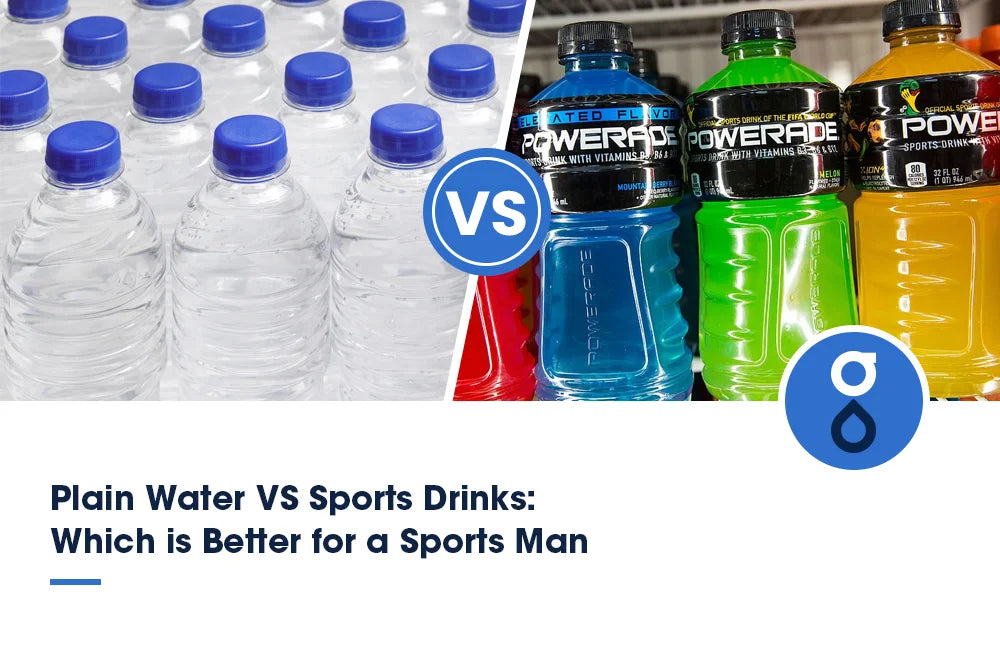Table of Contents:
What is vitamin water?
Different types of vitamin water
Is vitamin water good for your health?
The nutritional composition of vitamin water
The potential health benefits of vitamin water
The recommended daily intake of vitamin water
FAQs
Conclusion
Ever wondered about the truth behind the vitamin water hype? You're not alone. It's hard to ignore the vibrant bottles promising a plethora of health benefits. But are these claims more than just marketing tactics? In this discussion, we'll explore the nutritional composition of vitamin water, its potential health benefits, and whether it's as good for you as it claims to be. Stay tuned to discover if these colorful beverages are a health elixir or simply sugar water in disguise.
What is vitamin water?

Vitamin water, a refreshing beverage, is fortified water packed with various vitamins and minerals to boost your health. But where did this healthy drink originate? It's a brainchild of J. Darius Bikoff, who first introduced it to the world in 2000. He created Vitamin Water as a solution for people needing a flavorful, health-enhancing beverage, which quickly gained popularity. The brand offers a variety of flavors, each packed with specific vitamins and minerals to cater to your unique nutritional needs. From energy-boosting B vitamins to immune-supporting vitamin C, there's a Vitamin Water for everyone.
The brand's marketing strategies have been instrumental in its success. They've leveraged celebrity endorsements, catchy ad campaigns, and strategic product placements to make Vitamin Water a household name. They've effectively communicated that Vitamin Water is a healthier alternative to soft drinks, attracting health-conscious consumers.
Different types of vitamin water

Now that you're familiar with this healthful beverage's concept and history let's explore the different types of vitamin water available in the market. The industry is rife with Vitamin Water Flavors and Brand Comparisons, thanks to the competitive Marketing Strategies employed by different companies. The variety is staggering, with something to cater to everyone's taste and nutritional needs. To give you a sense of the variety, consider these popular options:
- Glaceau vitamin water: This is probably the most recognized brand, offering a wide range of flavors such as dragonfruit, kiwi-strawberry, and acai-blueberry-pomegranate. Each flavor is fortified with specific vitamins and minerals.
- Propel vitamin water: Propel markets itself as a fitness water, geared towards people who lead active lives. It includes electrolytes and vitamins.
- Sobe lifewater: This brand offers unique, exotic flavors like yumberry pomegranate and black and blueberry. These are zero-calorie drinks sweetened with Stevia.
- Activate vitamin water: What sets Activate apart is their twist cap that releases vitamins into the water, ensuring you get fresh, potent vitamins.
Is vitamin water good for your health?
While considering which vitamin water aligns with your health goals, it's essential also to assess the overall health benefits this beverage can provide. Vitamin Water's marketing strategies often highlight the added vitamins and minerals as a selling point, positioning the product as a healthier alternative to sugary sodas and other beverages. However, it's crucial to scrutinize these claims to avoid falling into the marketing hype.
One aspect that's often overlooked is the presence of controversial additives in Vitamin Water. These include sweeteners and preservatives that, in large amounts, may affect your health negatively. Some variants even contain as much sugar as a can of soda. Furthermore, sustainability issues related to Vitamin Water production can indirectly affect your health. The production and disposal of plastic bottles contribute to environmental pollution, which, in turn, can impact public health.
The nutritional composition of vitamin water

Delving into the nutritional composition of vitamin water, it's essential to note that not all brands are created equal. Different brands vary in their Hydration Levels, Sugar Content, and the presence of Artificial Additives.
Hydration levels: You want to opt for a brand with high hydration levels. Hydration is crucial for overall health and helps your body function efficiently. Be wary of brands that boast high hydration levels but are actually loaded with sugars and additives.
Sugar content: Be cautious about the sugar content in your vitamin water. Some brands can contain as much sugar as a soda, negating potential benefits. Always check the label before you buy.
Artificial additives: Many vitamin waters are packed with artificial additives and preservatives. These can have adverse effects on your health in the long run. Go for brands that use natural ingredients instead.
Vitamins and minerals: Lastly, don't forget to check the type and amount of vitamins and minerals. After all, it's 'vitamin water'. You want to ensure you're getting a good dose of nutrients.
The potential health benefits of vitamin water

When compared to plain water, vitamin water does contain additional nutrients. Its electrolytes, such as potassium and magnesium, help regulate fluid balance, nerve signals, and muscle contractions, which can be particularly beneficial after a strenuous workout. Some varieties also contain B vitamins, which aid in energy production.
However, it's crucial to consider hydration comparisons. While vitamin water can hydrate you, so can regular water without added sugars. The sugar content implications can't be ignored. Some bottles contain a substantial amount, contributing to your daily caloric intake and potentially leading to weight gain if consumed excessively. In short, while vitamin water can offer certain health benefits, it's essential to consume it moderately and consider the potential drawbacks. Always remember, it mightn't be a substitute for a well-balanced diet and regular water for hydration.
The recommended daily intake of vitamin water

You might be wondering how much vitamin water is safe to drink daily. The answer isn't one-size-fits-all, depending on your dietary needs and lifestyle. However, Intake Monitoring is crucial to ensure you're doing it correctly. Here are four key factors to keep in mind:
1. Individual needs: Some people may need more vitamins and minerals than others, depending on their diet and health condition. Always consult with a healthcare professional before significantly increasing your intake.
2. Hydration balance: While Vitamin Water can contribute to hydration, don't forget the importance of regular water. Relying solely on vitamin-enriched beverages could disrupt your hydration balance.
3. Daily Limitations: Be aware that vitamin water contains calories and sugar. Consuming too much can lead to weight gain and other health issues.
4. Nutrient overload: Vitamins and minerals are essential for health, but too much can be harmful. Over-consumption can lead to nutrient toxicity, especially with fat-soluble vitamins.
FAQs
Can vitamin water help with weight loss?
Vitamin water can help you stay hydrated, which is crucial when you're trying to shed pounds. Certain vitamins and minerals in vitamin water might slightly boost your metabolism, aiding in weight loss. However, some types of vitamin water contain a high amount of sugar that could lead to weight gain if you're not careful. So, it's essential to balance the intake of vitamin water with a healthy diet and regular exercise.
Can vitamin water be used as a substitute for a balanced diet or other forms of hydration?
While vitamin water is a good source of hydration, it shouldn't entirely replace pure water or other traditional methods. Over-reliance on vitamin water can also have adverse impacts due to its sugar content.
Are there any age restrictions or specific populations that should avoid consuming vitamin water?
Despite its health benefits, certain groups, particularly young children and those with specific health conditions, should limit their consumption of vitamin water. For example, kids under four shouldn't consume vitamin water due to the high sugar content and potential for exceeding the recommended daily vitamin intake. Diabetic individuals need to watch their sugar intake, making vitamin water a potential issue.
Conclusion
So, is vitamin water good for you? Well, it can be, thanks to its vitamin content. But remember, it's not a magic health potion. While it can supplement your diet, it shouldn't replace whole foods or regular water intake. Always keep an eye on your overall diet and lifestyle with Glacier Fresh. Now that you're armed with the facts, you can make an informed choice about including vitamin water in your daily routine.
















